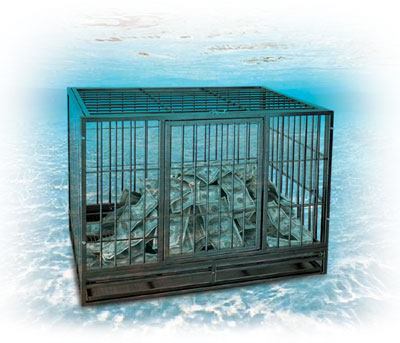As expected, no states applied for federal grant money available through the Virginia Graeme Baker Pool and Spa Safety Act.
Though some states mandate various safety measures for pools and spas, none satisfy the minimum requirements as they pertain to existing residential pools.
To become eligible, states had to adopt — or have on the books already — laws requiring barriers and entrapment-prevention systems on all new and existing commercial and residential pools and in-ground spas.
The deadline for states to apply for grant funding was May 28.
“Pool safety is frequently handled at the local level, which serves as another barrier to eligibility,” stated Kathleen Reilly, public affairs specialist with the Consumer Product Safety Commission.
“CPSC will continue to inform states about the minimum eligibility requirements so that they may, if they choose, work toward passing legislation that meets the requirements for grant eligibility.”
Grants would help states hire and train enforcement personnel to ensure compliance with those laws. They also would be used to educate pool companies on the laws, and to promote water safety and entrapment-prevention among pool owners and operators.
Congress allocated $2 million for the program for each of fiscal years 2009 and 2010. If it isn’t spent or spoken for, that money is retained by CPSC, according to the act.
Ever since the minimum grant requirements were released by CPSC in February, industry advocates doubted whether any states would meet the threshold. Mandating that existing residential pools be retrofitted for VGB compliance was identified as the main sticking point.
“How do you go into someone’s backyard and verify something like that?” asked Jennifer Hatfield, who heads up government relations for the Association of Pool & Spa Professionals and the Florida Swimming Pool Association.
Instead, she said, officials should consider amending the grant requirements to incorporate triggers that, if met, would allow states to become eligible for grant funding. As an example, Hatfield cited a proposal FSPA recently submitted to the Florida Building Commission stating that if a pool’s circulation system is altered, that would also require installation of VGB-compliant drain covers.
“In this case, you’ve got that trigger available, and you can tell consumers it’s required because now it’s part of the code,” Hatfield said. “Then you’re more likely to see states wanting to apply for grant money.”
Congress is taking a different approach, however. A proposed bill introduced in late spring before the House Energy and Commerce Committee includes a provision to expand grant eligibility to the local level.
While the Consumer Product Safety Enhancement Act of 2010 deals primarily with regulating lead content in children’s products, it also calls for extending VGB grant eligibility to cities and counties.
“It is CPSC staff’s understanding that some localities may have laws or codes that meet the minimum eligibility requirements,” Reilly said. “The draft bill may address this.”
The bill further proposes to extend the grant program an additional year, through the end of fiscal year 2011.
While industry advocates generally applaud the effort, the fear is that it still fails to address the primary barrier to grant eligibility.
“It’s certainly well-intentioned, and obviously we support it, but I’m not sure it’s going to accomplish what they want it to,” Hatfield said. “I don’t know if it matters if you’re talking about a locality or a state. It remains a blanket requirement on existing pools, and I think you’ve still got to have those triggers available.”




